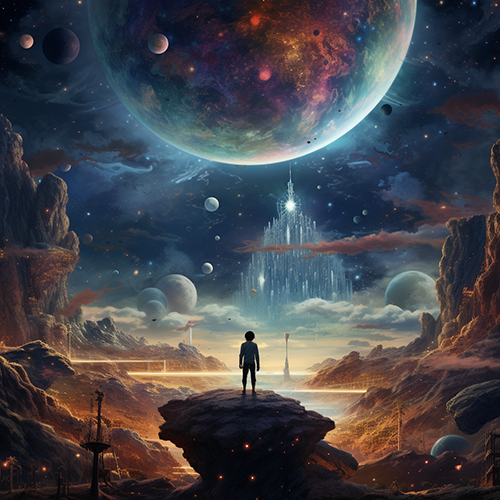
High magic, often contrasted with low or “folk” magic, is a term used to categorize a form of magical practice that is ceremonial and complex. It involves detailed rituals, invocations, and the use of esoteric symbols.
It’s a system of magic that emphasizes the practitioner’s ability to harness and manipulate the natural energies of the universe through specific, often elaborate rituals and ceremonies.
High magic is typically associated with the pursuit of deeper spiritual truths and the acquisition of profound knowledge.

Key Characteristics
Ritual Complexity
High magic rituals are detailed and structured, often requiring specific tools (like wands, robes, and altars), precise timing (such as astrological alignments), and elaborate ceremonial actions (chants, invocations, and visualizations).
Esoteric Knowledge
Practitioners of high magic, often referred to as magicians or occultists, invest in acquiring an extensive understanding of various occult systems, symbology, and ancient texts. This knowledge is considered essential for effective practice.

Spiritual Aspiration
Unlike low magic, which is more pragmatic and focuses on practical outcomes (like love spells, healing, or protection), high magic is pursued for spiritual growth, enlightenment, or the realization of one’s true will or higher self.
Historical and Cultural Depth
High magic draws on a rich tradition that spans various cultures and epochs, incorporating elements from the Kabbalah, Hermeticism, the Egyptian mysteries, Greco-Roman magic, and Renaissance magic, among others.
Examples of High Magic Systems
Hermetic Qabalah
Integrates Jewish Kabbalistic principles with Hermeticism and is foundational to many Western occult practices. It involves the study of the Tree of Life, a symbolic diagram, for insights into the nature of the divine and the universe.

Enochian Magic
Developed by John Dee and Edward Kelley in the 16th century, this system involves communicating with angels through an elaborate language and set of rituals received during their scrying sessions.
Thelema
Founded by Aleister Crowley in the early 20th century, it combines elements from Eastern and Western mysticism, Qabalah, and ceremonial magic, with a focus on fulfilling one’s True Will.
Practice and Study
Engaging with high magic often requires a significant commitment to study and practice. The practitioner must be willing to delve into complex philosophical concepts and spend time mastering the ritualistic aspects of the practice.
Despite its challenges, those who are drawn to high magic find it a powerful path for personal transformation and a deeper understanding of the mysteries of existence.

